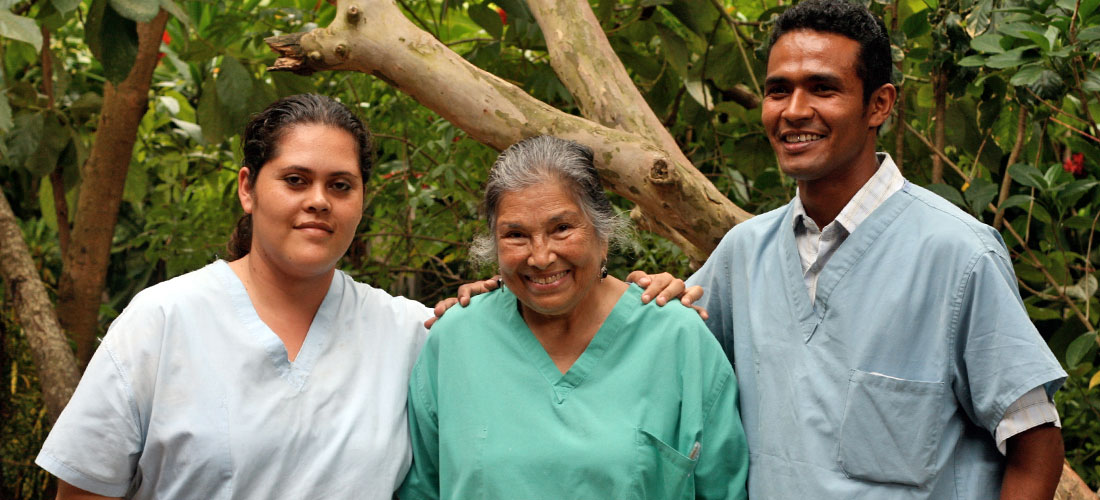Safe Motherhood in Rural Nicaragua

Our Skills to Save Lives project works to reduce Nicaragua’s unacceptably high maternal death rate. Nearly a quarter of Nicaragua’s poorest women give birth without any assistance from a skilled health professional, with 10 percent receiving no prenatal care at all. Most of these women live in isolated rural communities where inequalities in health care are deepened by difficulties in transportation, lack of local healthcare facilities and a scant supply of trained community health workers.
In the rural northern region of Matagalpa, pregnancy and childbirth carry an exceptionally great risk, with a persistently high number of preventable maternal deaths and fetal complications. To address this hardship, GHP partners with local NGO Skills to Save Lives and the Women’s Empowerment Network, which trains midwives and community health workers to ensure safe childbirth and healthy newborns.
Launched in 2011 by veteran rural women’s health professional Dorothea Granada, the project is a grassroots initiative that augments its training program by identifying and monitoring high-risk pregnancies, and ensuring safe, sanitary birthing conditions. This Safe Motherhood Project received a huge boost in 2014, when it became a national Ministry of Health initiative that is expanding into other underserved areas of the country.
This year, Granada launched a complementary program to combat domestic violence, as traditional midwives and Community Health Promoters saw this abuse as an ongoing threat to women’s reproductive health. To expand this effort, the project is currently training 54 local health workers to join the 35 who are building an educational and violence-prevention campaign that includes developing self-help groups for survivors of domestic abuse.

